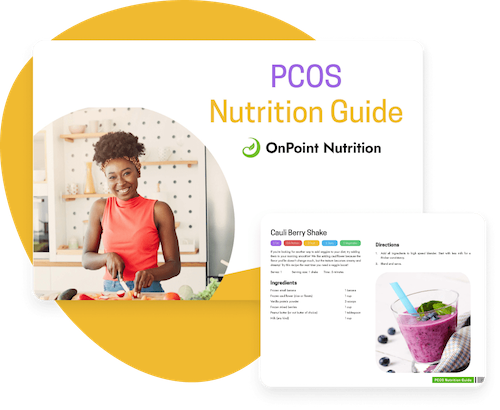Best Diet to Loss Weight With Pco
Learn how you can lose weight, gain energy, and improve your quality of life through dietary improvements. Small changes can make a big difference in living with PCOS. If you have been diagnosed with PCOS, an improved diet can help relieve your symptoms: Currently Reading Chapter Name Appears Here Each case of PCOS is different and its causes are not fully understood. Signs and Symptoms of PCOS Your doctor will administer tests to determine if you have PCOS. If you are diagnosed with the condition, work with your doctor and a nutritionist for PCOS to make lifestyle changes to continue to live a normal life. Learn more about PCOS Symptoms here. If you are looking for the quick and dirty on a PCOS diet, here are the key facts Nutritionists for PCOS want you to know PCOS is a condition that causes a hormonal imbalance in women of reproductive age. Each woman's PCOS symptoms are unique. Many studies have explored the link between blood sugar, insulin, and PCOS. Here's what science has taught us: Check out the 5 Things Every Woman with PCOS Should Know Team up with your Primary Care Physician, OB/GYN, Endocrinologist and Nutritionist for PCOS! Start with your Primary Care Physicianand OB/GYN. Be prepared to discuss your signs and symptoms, as well as your family's reproductive medical history.If they believe that your condition may be PCOS, ask them to refer you to an endocrinologist. Endocrinologists specialize in hormone-related disorders. Your Primary Care Physician, OB/GYN and Endocrinologist will conduct a symptom assessment and review your blood work to check hormone levels and make a diagnosis. Your OB/GYN may also perform an ultrasound on your ovaries to detect cysts or follicles symptomatic of PCOS. If it turns out that you do have PCOS, consider working with a nutritionist for PCOS to build an eating routine that will alleviate symptoms. Whether it be for increasing your energy, losing weight, or infertility linked to PCOS, a dietitian is a valuable part of your care team. To learn more about our approach to helping you manage your PCOS click here Take your reading on the go and download the PDF, included with your downloadable guide is a 7-day meal plan complete with easy-to-follow recipes and shopping lists. Working with a dietitian for PCOS to promote healthy eating habits can alleviate your PCOS symptoms. Research suggests lifestyle change to be the FIRST line of treatment for women dealing with PCOS. Women who achieve weight loss of as little as 5-10% of their body weight experience a significant improvement in ovulation rates. Before speaking with our PCOS dietitians to build a PCOS Diet, discuss your specific diagnosis and treatment plan with your doctor in detail. Bring all of this information to our PCOS dietitians so that we can build a PCOS Diet tailored specifically to you. We may also incorporate PCOS supplements into your plan. Our recommendations will vary depending on the presence and severity of your specific symptoms. Click HERE to learn more about high quality carbohydrates, and how to use the Glycemic Index to choose carbohydrates that will help stabilize your blood sugar. Vitamins and Minerals Important for PCOS Symptom Relief and Food Sources Vitamin D Vitamin B8 Iodine Selenium Magnesium Many people try fad diets as a way to alleviate their PCOS symptoms. But should they? People who suffer from inflammation caused by lactose, gluten, or soy will find advantages to following dairy-free, gluten-free, or soy-free PCOS diets. However, in regards to a PCOS diet, no scientific data currently exists to support restricting or avoiding entire food groups or specific items to improve symptoms. We know that to improve PCOS symptoms, it helps to lose 5-10% of your body weight and and exercise regularly. Your dietitian will be able to work with you to determine a specific PCOS diet to optimize your health. Read more about following a dairy-free diet for PCOS Vegan diets consist of eating grains, vegetables, and fruits. If following a vegan diet for PCOS symptom management is an option for you, it is imperative to include high quality carbohydrates that do not exceed 45% of your daily food intake. Because vegan diets consist of vitamin- and mineral-rich whole foods, it can be tremendously useful in alleviating PCOS symptoms. Research has shown that following a proper vegan diet can improve ovulation, regulate menstruation, and reduce risk for future conditions associated with PCOS, such as type 2 diabetes. Speak with our dietitians and nutritionists to ensure you are eating a nutritionally sound vegan diet to reduce weight and manage PCOS symptoms. Read more about following a vegan diet for PCOS The Ketogenic Diet, (Keto) is a special high-fat, low carbohydrate diet designed to control seizures in individuals diagnosed with epilepsy. In recent pop culture, the Keto diet is viewed as a quick weight loss solution. Because the Keto diet is an extremely strict, nutritionally unbalanced diet, we do not recommended it for PCOS management. In order to create a lifetime of nutritionally sound habits, follow the advice of your dietitian to manage you PCOS. Avoid the Keto diet. Read more about following a Keto diet for PCOS We do not recommend Intermittent Fasting for long term PCOS symptom relief. If you have PCOS, it is very important to consume multiple small meals throughout the day. This approach will allow your insulin levels to self-regulate and remain balanced. If you are intermittent fasting, your large meals cause Hyperinsulinemia (excess insulin in blood). Hyperinsulinemia increases androgen production, increasing the clinical effects of PCOS! Read more about intermittent fasting and PCOS Read all the answers to these PCOS FAQs in our full write up! Maintaining a balanced diet and healthy weight are key in managing PCOS symptoms. Consuming a diet rich in nutrients, vitamins, and minerals will aid in healing your body from the inside out. Anti-inflammatory foods can also make a big difference. The following food choices will help keep blood sugar levels stable while helping to achieve a healthy weight to manage complications associated with PCOS. Learn more about which foods to eat with PCOS and PCOS friendly recipes To achieve weight loss and improve PCOS symptoms, speak with our nutritionist for PCOS about proper portions, and portion sizes. This ensures that you are getting the right amount of nutrients you need to manage your PCOS. Lean Protein Eating meat low in fat will aid in weight loss and keep you feeling full longer. Complex Carbohydrates Eating carbohydrates that are high in fiber will work to lower insulin levels and lower inflammation in the body. Antioxidant Rich Fruits and Veggies Antioxidants will work to decrease inflammation in the body, boost immunity, and help to prevent obesity. Heart Healthy Fats Fat is a biological necessity and will increase hormone production, aid in vitamin absorption, and improve heart health and brain function. Let your intuition guide you. A PCOS Diet emphasizes eating whole, unprocessed healthy food to enable vitamin absorption, nutrient intake, and weight loss. It is important to stay away from refined sugars, white flour, and excessive sugary beverages. These products increase blood insulin, which results in greater androgen production... ultimately worsening PCOS symptoms. For an even more detailed look at foods to avoid with PCOS, click here Steer clear of: Go beyond what you're learning in this guide, included with the downloadable PDF is a 7-day meal plan complete with easy-to-follow recipes and shopping lists. "I have PCOS and I just can't lose weight!" - A PCOS Diet can help you slim down Weight loss can be difficult for women with PCOS, but it is achievable. It is important to remember that weight loss with PCOS will be gradual and slow due to the hormonal imbalances, inflammation, and blood sugar issues associated with PCOS. To reach your weight loss goals, work with your doctor to incorporate medications that will work to improve insulin sensitivity. Weight loss will be possible when you combine a healthy diet, regular exercise, and proper medication. Remember, weight loss may be slow, but once you lose ~5-10% of your body weight, your PCOS symptoms will be largely controlled. Read more about PCOS and weight loss Not all women with PCOS are overweight or obese. About half of all PCOS cases are women who fall within the normal weight range. Women diagnosed with PCOS will have ovaries that are oversensitive to the effects of insulin, resulting in excessive androgen production. Even if you are not overweight, by eating a well-balanced diet, you can decrease the effects of insulin on your ovaries. In addition, even women who are considered a normal weight are at an equal chance of developing risk factors associated with PCOS, such as cardiovascular disease, hypertension, infertility, and type 2 diabetes. It is important to consume a high-quality diet to support blood sugar control and hormone balance. In addition, establishing a regular exercise routine to maintain a healthy weight to prevent these conditions is important. Exercise can help you lose weight AND relieve other PCOS symptoms such as insulin resistance and hormone imbalances. The best types of exercise for PCOS are: Read more about why we recommend these types of workouts in our full write up on PCOS and Exercise If you have PCOS and feel chronically fatigued (a.k.a. overtired), you may be surprised to know that PCOS and fatigue are actually related. While fatigue symptoms may occur for anyone, PCOS has three specific linkages to your chronic fatigue: Each of these fatigue causes affects your body slightly differently and has a unique remedy. Given these fatigue causes, your nutritionist may incorporate supplements into your PCOS Diet. Read our full write up on PCOS and Fatigue to learn actionable improvements Have you noticed thinning hair, or that you might actually be losing your hair? You're not alone. 40-70% of women with PCOS experience hair loss. High testosterone (the "male" hormone) is a contributor to hair loss for women with PCOS. Common ways to treat hair loss include: For specific recommendations and ideas, read our full write up on PCOS and Hair Loss Your symptoms are unique to you. Your nutritionist tracks your food with you and makes specific recommendations to help you feel better. Based upon your daily routine, we will build a custom plan to help alleviate your PCOS symptoms. Success does not happen overnight. If something isn't working quite right, we make changes right away.PCOS Diet

Polycystic Ovarian Syndrome, PCOS, is a condition that adversely affects a woman's reproductive hormones.
PCOS: Why your diet matters

Facts to Remember about PCOS
PCOS is the number one health condition women face today, with more then 1 in 5 suffering from its symptoms. According to the American Society for Reproductive Medicine, the prevalence of infertility in women with PCOS is between 70-80%. PCOS causes hormone levels to become irregular, which makes it hard for women to become pregnant. PCOS can also increase the risk of miscarriage. Read more about PCOS and fertility on our resource page.
Research suggests that PCOS may be caused from both genetic components and environmental influence. PCOS is believed to be caused from one or more gene mutations and is hereditary. Environmental influences such as having a sedentary lifestyle, smoking, and excessive alcohol consumption may put you at higher risk of developing PCOS.
Doctors will perform a series of blood tests, ultrasounds, and a symptom analysis to diagnose PCOS. Although PCOS stands for Polycystic Ovarian Syndrome, many professionals are working to change the terminology. Women can be diagnosed with or without the presence of cysts on ovaries. Due to the complexity and unknown cause of PCOS, Doctors will diagnose a patient if they present a combination of one or more symptoms commonly associated with the condition.
In addition to hormone imbalance, women with PCOS experience insulin insensitivity. Insulin moves sugar (glucose) from the bloodstream into cells for energy. Women with insulin insensitivity due to PCOS are not able to convert sugar to energy, resulting in higher levels of insulin in the bloodstream. Higher levels of insulin cause an increase in androgen production and an increase in appetite. These factors can be correlated (but not a cause) of weight gain. However, it is very realistic to lose weight if you have PCOS. Our RDs also have specific exercise recommendations for women who want to become more physically active.
Who Can Help Me with a PCOS Diet?

Improve your PCOS symptoms and take action — today!


What is a PCOS Diet?

The Basics of a PCOS Diet
Women with PCOS are more likely to be diagnosed with type 2 diabetes than women who do not have PCOS. Similar to a diabetic diet, it is important for women with PCOS to consume high quality, high fiber carbohydrates. This will aid in stabilizing your blood sugar levels.
Consuming a well balanced PCOS Diet will help to keep your body in a neutral, homeostatic state. A balanced PCOS Diet allows insulin to function properly by bringing glucose to your cells for energy. This process results in less insulin in your bloodstream, ultimately decreasing androgen production and alleviating your PCOS symptoms.
Do not skip meals. Skipping meals can crash your blood sugar levels, leading to food cravings and overindulgence. Keeping a routine will allow your blood sugar levels to stabilize. Stable blood sugar aids in the proper androgen production in your body. Proper androgen production = less severe PCOS symptoms. Some doctors recommend eating smaller, more frequent meals to better regulate blood sugar and establish better habits.
Studies show consuming foods high in Vitamin D, Vitamin B, Iodine, Selenium, and Magnesium will greatly aid in improving insulin resistance, and decrease the severity of symptoms associated with PCOS.
salmon, eggs, mushrooms, fortified milk tuna, almonds, eggplant, strawberries, corn, oranges, beans eggs, turkey breast, himalayan salt, salmon, yogurt tuna, salmon, pork, fortified whole grains, turkey, eggs, cottage cheese, spinach avocados, dark chocolate, nuts, seeds, whole grains, bananas
Frequently Asked PCOS Diet Questions
Should I follow a dairy-free, gluten-free, or soy-free PCOS diet?
Should I try a vegan diet for PCOS?
Should I try a Keto Diet for PCOS?
What about Intermittent Fasting?
We Hear a Host of other PCOS Questions. Here are other Common PCOS FAQs
So, what should I eat for my PCOS Diet?
Food Group Examples
OK, got it! What foods should I avoid for my PCOS Diet?
Lose weight, gain energy, and improve your quality of life.



Yes, weight loss is possible with the right PCOS Diet
Should I still need to follow a PCOS Diet if I am not overweight?
Can Exercise Help My PCOS?
PCOS and Fatigue
PCOS and Hair Loss
Our PCOS Nutritionists Listen
A Plan Built Just for You
Continuous Improvement
Our dietitians and nutritionists build custom plans tailored to help you manage your PCOS and reach a variety of goals. Our expertise includes: Managing blood sugar, insulin levels, and weight loss for PCOS Questions? Contact us!
"We have helped hundreds of women manage their PCOS to meet a variety of goals. Whether its weight loss or just feeling better, we know how hard it can be to take the first step.
We hope you will allow us to help you tackle your health issues head-on."
Best Diet to Loss Weight With Pco
Source: https://www.onpoint-nutrition.com/pcos-diet
0 Response to "Best Diet to Loss Weight With Pco"
Post a Comment